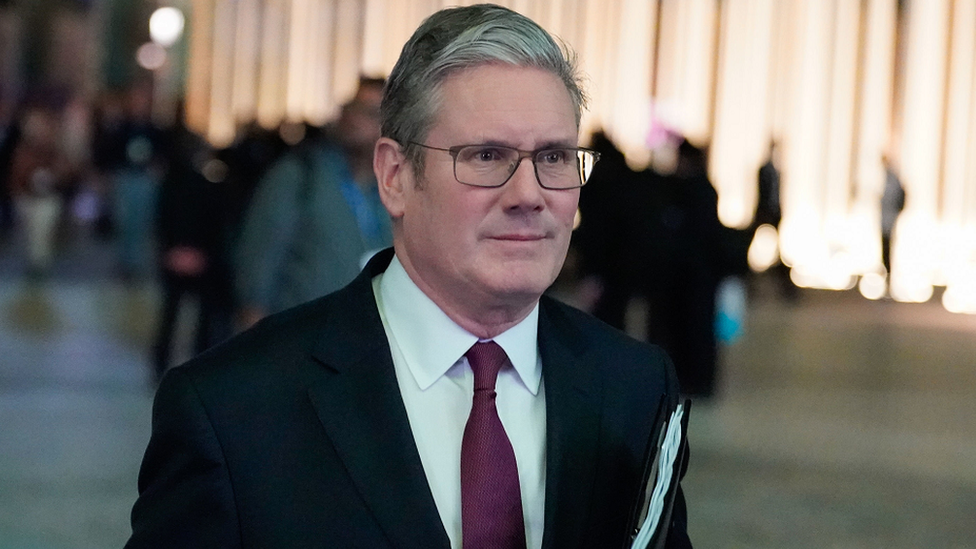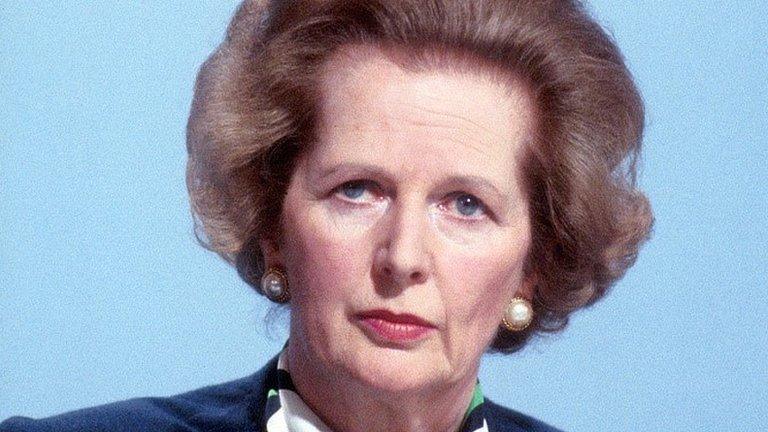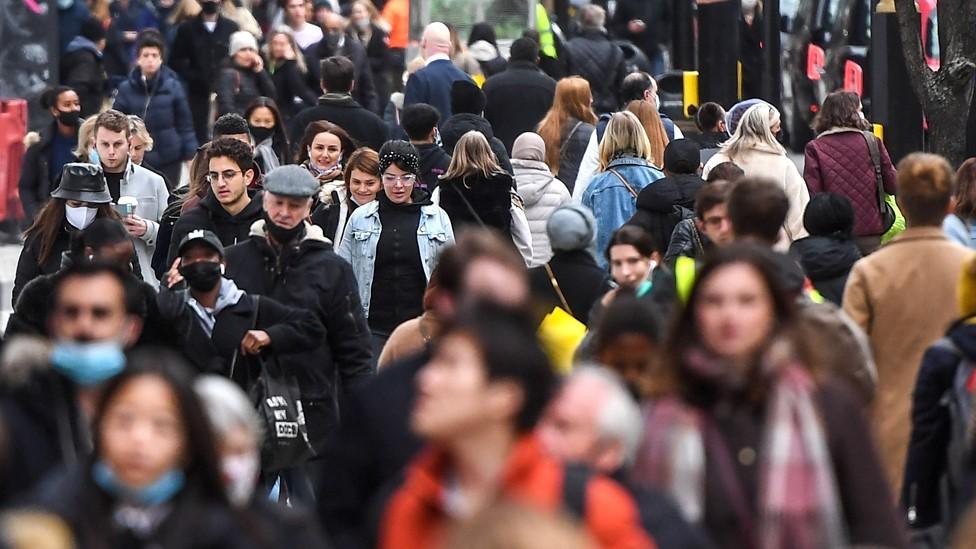Keir Starmer defends praising Thatcher in pitch for Tories
- Published

The Labour leader has accused the government of failing to deliver on its promises on immigration
Sir Keir Starmer has defended crediting Margaret Thatcher as a leader who effected "meaningful change".
The Labour leader said Baroness Thatcher set loose Britain's "natural entrepreneurialism" in an article for the Sunday Telegraph.
Speaking to BBC Radio 4's Broadcasting House, he later said he had wanted to stress her "sense of purpose" - but it did not mean he agreed with her.
Sir Keir also praised Labour PMs Tony Blair and Clement Attlee.
In a clear pitch to Conservative voters, Sir Keir highlighted immigration and small boat crossings in his article as "matters of serious public concern".
"Every moment of meaningful change in modern British politics begins with the realisation that politics must act in service of the British people, rather than dictating to them," Sir Keir wrote.
"Margaret Thatcher sought to drag Britain out of its stupor by setting loose our natural entrepreneurialism."
In the article, Sir Keir also praised previous Labour leaders, saying: "Tony Blair reimagined a stale, outdated Labour Party into one that could seize the optimism of the late 90s.
"A century ago, Clement Attlee wrote that Labour must be a party of duty and patriotism, not abstract theory."
Later on Sunday, Sir Keir told Broadcasting House that the point of his article was to compare what he described as the "drift" of recent years with the "sense of mission" of previous leaders.
"It doesn't mean I agree with what she (Thatcher) did, but I don't think anybody could suggest she didn't have a driving sense of purpose.
"We've declined as a country in the past 13 years," he said, but added Labour would bring through "a driving sense of purpose".
"The point I am making in that article is that you can distinguish political leaders, certainly in the post war period, into those that had a plan and a sense of mission, and those that drifted essentially."

Margaret Thatcher, a controversial figure on the left, was one of three prime minister praised by Sir Keir
But Sir Keir's comments about Baroness Thatcher may anger some on the left of the Labour Party.
Momentum, the campaign group set up to support Labour's former leader Jeremy Corbyn, said: "Margaret Thatcher represented the opposite of everything the labour movement stands for.
"By praising her, Starmer brings shame on our party."
Responding to Sir Keir' comments, Labour MP Ian Byrne - a member of the parliamentary Socialist Campaign Group - said Baroness Thatcher's legacy was "inequality, hunger, destitution and misery".
Left the party
In his campaign to become a Labour, Sir Keir highlighted his opposition to Baroness Thatcher in many of the key battles of the 1980s.
In his article in the traditionally conservative Sunday Telegraph - Sir Keir sought to highlight how Labour had changed from the party of 2019 under the leadership of Jeremy Corbyn.
"Across Britain there are people who feel disillusioned, frustrated, angry, worried," he wrote.
"Many of them have always voted Conservative but feel that their party has left them. I understand that. I saw that with my own party and acted to fix it."
He also accuses the government of squandering economic opportunities and failing to "realise the possibilities of Brexit".
Sir Keir, a former Remain supporter, unsuccessfully campaigned for a second referendum while shadow Brexit secretary in Mr Corbyn's shadow cabinet between 2016 and 2020.
As Labour leader, he has insisted there is no case for re-joining the EU.
'No, no, no'
Health Secretary Victoria Atkins accused Sir Keir of trying to "ride on the coattails" of Baroness Thatcher's success.
She told Sunday Morning With Trevor Phillips on Sky News: "I think the public will see this for what it is.
"Don't forget, he wasn't appealing to Margaret Thatcher's entrepreneurial spirit when he was courting votes from the hard-left.
"And I suspect the great lady herself would view a man that is trying to ride on the coattails of her success with the following words: 'No, no, no'."
The next general election must take place by 28 January 2025 but is widely expected to be held next year. Prime Minister Rishi Sunak will decide when to call the election.
The Conservatives are currently trailing in the polls, and Labour won two key by-elections in October.
- Published29 November 2023
